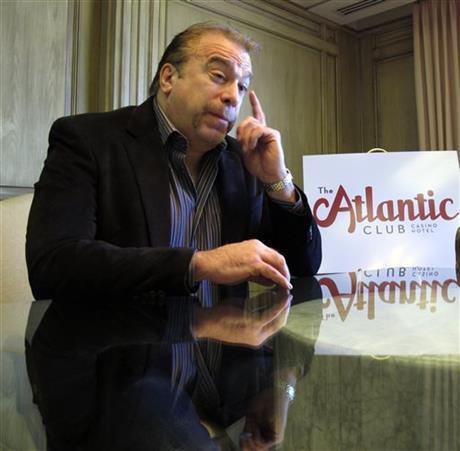
The struggling Atlantic City casino market reached a dubious milestone this week: Half of its 12 casinos have filed for bankruptcy protection in the past six years.
The most recent was The Atlantic Club Casino Hotel, which filed for Chapter 11 bankruptcy protection with the help of a bankruptcy attorney recently. The casino formerly known as the Atlantic City Hilton says it will remain open as it seeks a buyer.
Its first hearing in federal bankruptcy court could be held as soon as Friday.
Michael Frawley, the casino’s chief operating officer, said its strategy of offering low-priced gambling, food and entertainment has been working but not fast enough. About 70 percent of the casino’s floor consists of penny slot machines.
“We believe in our property’s positioning and the value-centric niche we committed to nearly 18 months ago,” he said. “Our creative branding campaign and the tremendous efforts of our employees have resulted in property growth within a continually challenged market. Unfortunately, the market has taken longer to rebound than we had hoped.”
Frawley said the casino, hotel and restaurants will remain open and operate on normal schedules.
“It will be business as usual at The Atlantic Club,” he said.
However, in an affidavit filed with the bankruptcy court, Eric Matejevich, co-chief operating officer of the casino’s parent company, wrote that the company “does not have sufficient cash resources or committed financing to operate The Atlantic Club and service ordinary course obligations for an extended time period.”
In an interview Thursday with The Associated Press, Matejevich said a number of potential buyers have expressed interest in purchasing the casino out of bankruptcy court.
The eventual price is likely to be less than the $15 million that the PokerStars website was prepared to pay for the casino before the deal fell through earlier this year, and will in all likelihood mark the lowest price ever paid for an Atlantic City casino.
For the first nine months of this year, The Atlantic Club experienced a $7.3 million operating loss, according to bankruptcy court documents. It currently has 1,660 employees, and no layoffs are planned, Frawley said.
Matejevich said a company the casino hired to solicit potential buyers contacted 120 prospective purchasers from November 2011 through September 2012. Of those, 12 signed confidentiality agreements to explore the casino’s finances, but none offered to buy it.
In its bankruptcy filing, the casino did not list its assets and liabilities. It is asking the court to allow it until Dec. 20 to list them. Matejevich would not estimate them on Thursday.
The casino is owned by the Los Angeles hedge fund Colony Capital.
Matthew Levinson, chairman of the New Jersey Casino Control Commission, said The Atlantic Club should benefit from Chapter 11 protection, just as its many predecessors have.
“I expect that The Atlantic Club will continue to operate just as it has been operating,” he said.
The bankruptcy filing means The Atlantic Club will not be among the first Atlantic City casinos to offer Internet gambling when it begins in New Jersey on Nov. 26, after a five-day trial period. Frawley said it is impossible to predict what an as-yet unknown buyer’s plans would be for online gambling.
The Atlantic Club joins Revel Casino Hotel as casinos that sought Chapter 11 protection this year. Revel emerged from bankruptcy court in May.
Since 2007, when the Tropicana Casino and Hotel filed for bankruptcy, six of Atlantic City’s 12 casinos have done so. The three casinos that at the time were owned by Trump Entertainment Resorts went through bankruptcy court — for the third time — in 2009.
The rapid expansion of casino gambling in the eastern United States has put tremendous pressure on a resort that for decades was the only place outside Nevada that offered legal casino gambling. The development of casinos in neighboring Pennsylvania, New York, Delaware, Maryland and Connecticut has cut deeply into Atlantic City’s market.
In 2006, when the first Pennsylvania casino opened, Atlantic City’s gambling revenue was $5.2 billion. It fell to a little more than $3 billion last year and could fall below that figure this year.



